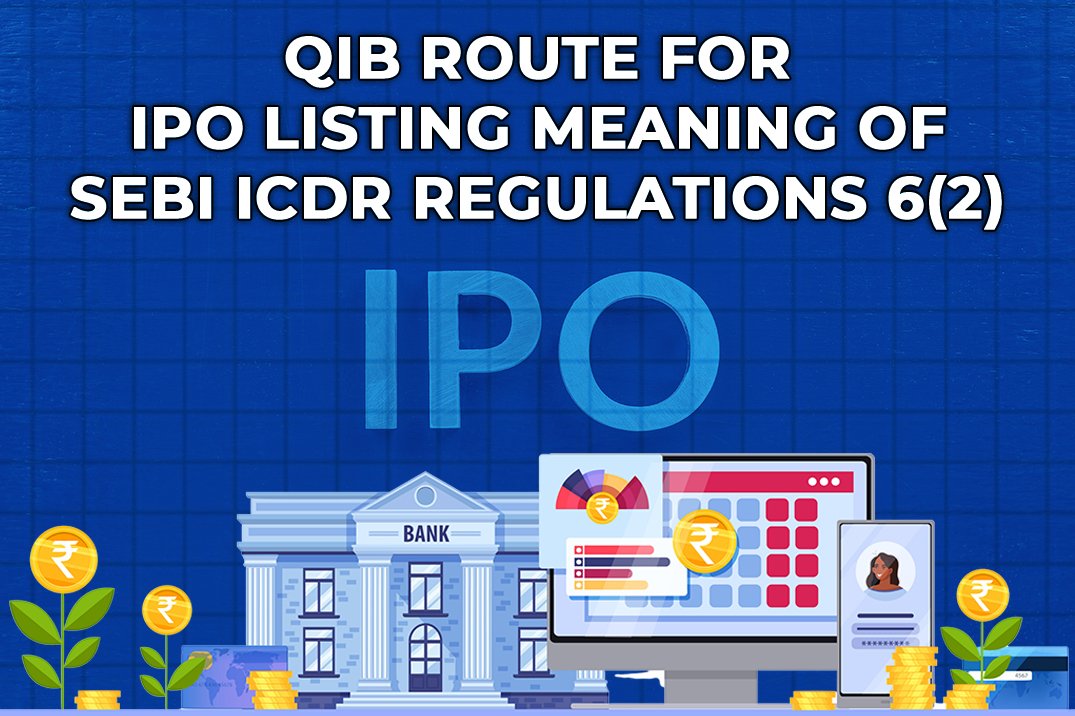
SEBI has regulations for listing profitable companies, but what about companies that are not profitable but are eager to access public funding? So SEBI has made the QIB route for them under SEBI ICDR Regulations 6(2), which is completely different from regulation 6(1) made for listing companies in NSE & BSE for mainboard IPOs.
QIB Route refers to one of the special pathways made by SEBI for companies that are not meeting SEBI’s strict profitability norms to raise funds through IPO in India with the help of Qualified Institutional Investors (QIBs) such as mutual funds, pension funds, insurance companies and other large institutional investors. This route allows firms to allocate at least 75% of their IPO shares to QIBs that not only bypass traditional profit requirements but also make the IPO process more credible and stable.
Institutional Investors possess a deep understanding and expertise of the market and they make it easier for innovative and high-growth companies to raise funds that are essential for their long-term growth and expansion.
In India, there are many tech and SaaS companies which have gone the QIB route due to not meeting the traditional profitability norms set by SEBI. These companies have demonstrated strong business fundamentals and have seen robust post-listing performance, reflecting investor confidence in the QIB route.
| Company Name | Listing Date | Sector/Business Description | Profitability (Operating Profit %) | Post-Listing Price Gain* |
|---|---|---|---|---|
| RateGain Travel Technologies Limited | 17-Dec-2021 | SaaS provider for the travel and hospitality industry | -12.67% | 3.405 |
| Tracxn Technologies Limited | 20-Oct-2022 | Market intelligence and SaaS platform | -21.41% | 0.9335 |
| Awfis Space Solutions Limited | 30-May-2024 | Flexible workspace provider | -40.67% | 4.025 |
| Unicommerce eSolutions Limited | 13-Aug-2024 | E-commerce enablement SaaS platform | 0.0833 | 2.1005 |
| Quadrant Future Tek Limited | 14-Jan-2025 | Train control systems and specialty cables | 0.1033 | 0.2759 |
| Feature | Regular IPO Route | QIB Route (Regulation 6(2)) |
|---|---|---|
| Profitability Criteria | Mandatory | Not required |
| Minimum QIB Allocation | 50% (book-built IPOs) | 75% |
| Retail Investor Allocation | Up to 35% | Up to 10% |
| Book-Building Mandatory | Optional | Mandatory |
| Refund if QIB Quota Not Met | Not applicable | Full refund to all applicants |
Overall, the QIB route is one of the great ways for companies looking to go public to raise essential funds for their growth. It allows even those companies to come with the IPOs that do not meet the normal profitability requirements prescribed for companies to go for IPO. This route also safeguards the retail investors by mandating a high allocation(75%) to qualified institutional investors. This route is best suited for the innovative, growth-oriented companies, especially those coming from tech or SaaS sectors but attracts institutional interest due to future growth even with the lack of a long track record of profits.
Read more :

